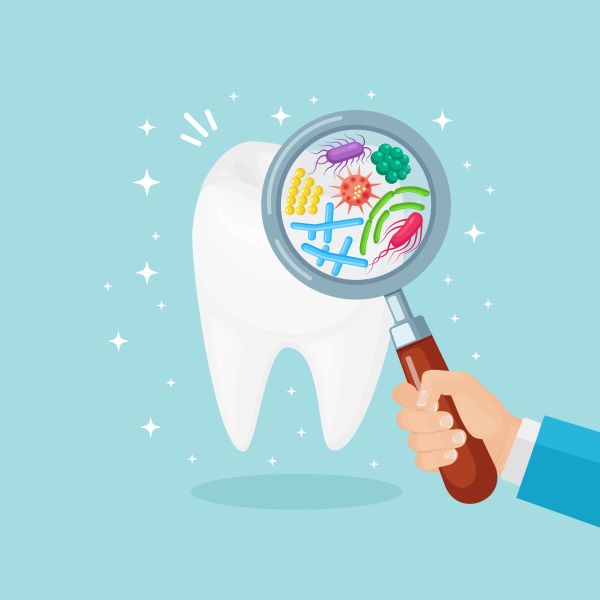The 5 Main Causes of Oral Bacteria Explained

Your mouth naturally contains a balance of healthy microorganisms. Out of 700 different types of bacteria in the mouth, the majority of them are present naturally and do not harm us. However, poor dental hygiene can cause the growth of harmful bacteria leading to more sensitive teeth and bleeding gums, a condition commonly known as gingivitis. There is a term coined for rapid growing gingivitis known as “Trench mouth” that is more common in teenagers and younger adults. It has also been found to be common in developing countries where people have poor nutrition and dismal living conditions. The causes for the increase in such harmful bacteria that can destroy a persons gum tissue and teeth are closely related to their eating habits and their dental hygiene.
The causes
- Poor dental hygiene: When we eat food, some of the food gets stuck in our teeth or other parts of the mouth. These particles later become the medium for bacterial growth. To prevent this from happening, it is suggested by dental professionals that people rinse their mouth after every meal.
- Poor nutrition: Every part of our body needs proper nutrition to function, and teeth enamel require specific nutrients to stay intact. Keeping tooth enamel in good condition is vital for the prevention of bacterial growth. Also, the lack of proper nutrition in the body will lead to a poor immune response in the body which will further help in the growth of the bacteria.
- Higher intake of sugary, starchy, and sticky foods: These kinds of foods promote the growth of bacteria because they stay in our mouth for a long time and they are also a very good medium for the growth of the bacteria.
- Snacking throughout the day: Like we already mentioned, the longer the food stays in the mouth, the higher the chance of bacterial growth is. Chewing of sugar-free gums between meals can help secrete saliva 10 times more than normal. Saliva helps strengthen teeth with important minerals.
- High intake of acidic or carbonated drinks: Acidic medium provides perfect conditions for the bacterial growth. So, If possible completely eliminate highly acidic foods such as carbonated sodas, lemons, citrus fruits or rinse your mouth after drinking them. Use of a straw while drinking acidic drinks might help to push the drink to the back of your mouth avoiding any teeth contact.
The symptoms
When the amount of such bad bacteria increases in our mouth, it might cause the following symptoms:
- Bad breath or a bad taste in the mouth
- Bleeding in response to irritation (such as brushing) or pressure
- Crater-like ulcers in the mouth
- Grayish film on the gums
- Gums that are red, swollen, or bleeding
- Pain in the gums
In order to be completely free of the adverse effect of these harmful bacteria from our mouth, we need to have a proper dental hygiene that includes brushing twice a day and flossing. We also need to use mouthwash because brushing and flossing only will only kill about 25% of these bacteria.
Request an appointment here: https://gkdentaloffice.com or call GK Dental PC at (617) 826-6075 for an appointment in our Everett office.
Recent Posts
Practicing good oral hygiene basics is the best line of defense against cavities, abscesses and other problems that can plague a person’s mouth. A visit to the dentist can show someone where changes need to be made and help direct improvements in cleaning habits. The following information can more fully explain what needs to happen…
Tooth decay is something that everyone has to deal with at one point or another in life. It is the act of the teeth literally deteriorating as a result of cavities. Tooth decay can be difficult to prevent, but having an understanding of what makes someone more susceptible to it can be helpful. Continue reading…
Avoiding cavities, also commonly known as tooth decay, is one of the more important things someone can do to ensure their overall good oral health. When someone is diagnosed with a cavity, it means that they have permanently damaged the tooth. In order for them to have their tooth fixed, they will need to make…
Your toothbrush is your first line of defense against cavities and tooth decay because it helps to remove the plaque in your mouth and maintain strong and healthy teeth. However, most people do not properly take care of their toothbrushes, which can leave your teeth and mouth vulnerable to diseases.If you want to learn how…


